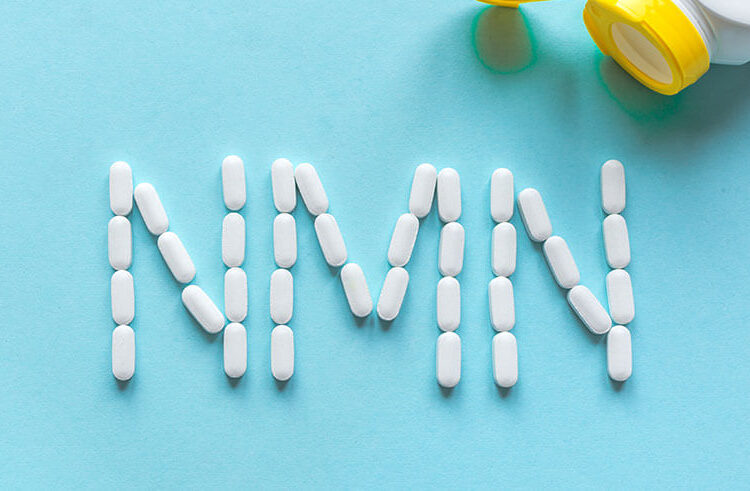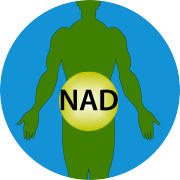If you’ve been paying attention to the latest in health and wellness, you know NMN (nicotinamide mononucleotide) has been taking the natural anti-aging industry by storm. Indeed, the on-line presence of various NMN supplements has become common search targets for those interested in its emergence in the market. Scholarly research, as well, is substantial enough to see it as an important exploration into anti-aging.
Both younger and older adults are now hoping to reap the benefits of this potentially age-defying supplement. Over the past couple of decades science has been exploring how NMN figures into our living longer, healthier lives.1
If you find the emerging news over NMN intriguing, you should know there may be a “right” and a “wrong” way to take advantage of what some call a potential “fountain of youth.”
In this definitive guide to NMN supplements, we’ll get into the minute details that surround this natural powerhouse anti-aging tool, including:
What is Nicotinamide Mononucleotide?
Nicotinamide mononucleotide is a compound that’s more commonly shortened to the abbreviation of NMN. It’s a metabolic precursor to the essential coenzyme NAD+ (nicotinamide adenine dinucleotide). As NAD+’s precursor, NMN helps the body produce and maintain healthy levels of NAD+.
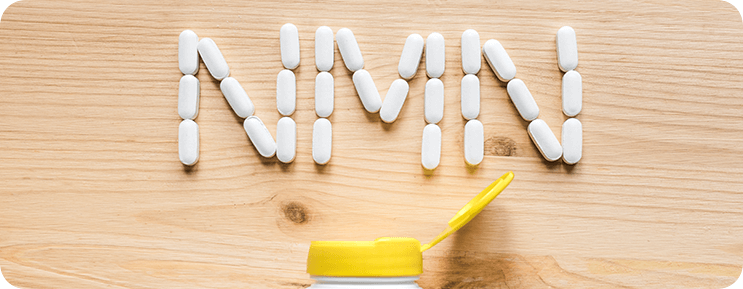
But what’s NAD+,
and why is it important?
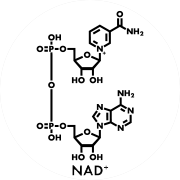
NAD+ influences many bodily functions and its list of interactions is growing every day. NAD+ has well over 500 distinct reactions on a cellular level, making it an essential coenzyme for regulating normal cell function.2
Unfortunately, NAD+ enzymes aren’t capable of crossing cell membranes on their own, so merely supplementing the diet with NAD+ will not result in it getting into your system. To increase our natural NAD+ levels, however, we can supplement the diet with a precursor that does get through, after which it transforms naturally into NAD+.
The good news is that NMN is such a precursor, so supplementing with it can do just that. NMN, once ingested, can help restore and regulate NAD+ levels to the numbers we had in our youth. And that’s just one of the reasons NMN is considered a possible anti-aging compound among doctors, researchers, and scientists alike.
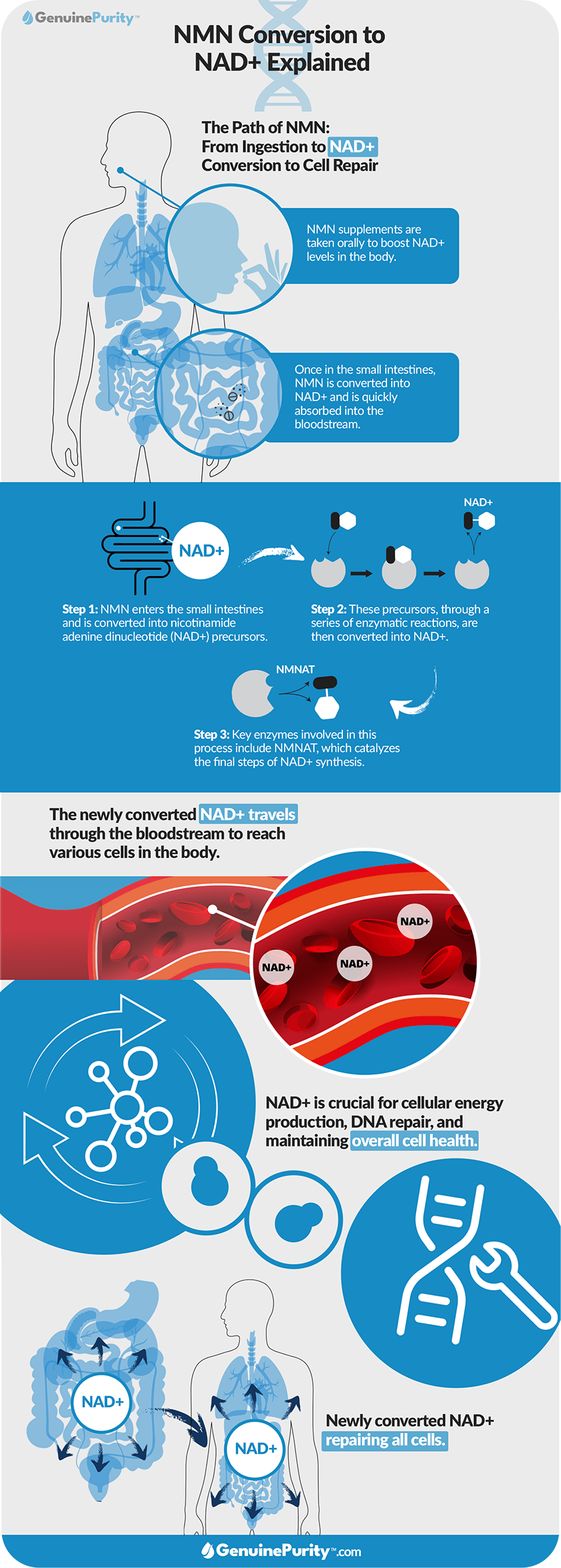
Where Does NMN Come From?

NMN (nicotinamide mononucleotide) is a naturally occurring compound that is derived from Vitamin B3. While they are closely related, NMN and B3 are entirely different on molecular levels, with unique biological functions.
To get a better idea of what those key differences are, let’s learn a little about both Vitamin B3 and NMN and the roles they each play in the body.
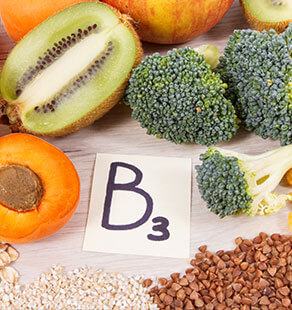
Vitamin B3
Vitamin B3 is also known as niacin or nicotinic acid, which converts food into energy. Vitamin B3 has been shown to be beneficial for the nervous system, digestive system, and to our overall skin health. While vitamin B3 is in many multivitamins and health supplements, most of us are able to source enough from the foods we eat.5
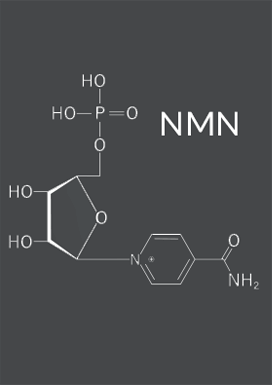
NMN (Nicotinamide Mononucleotide)
NMN is an NAD+ precursor that has been shown to have a positive impact on everything from our metabolism to our cognitive function to heart health. Because of the wide range of benefits NMN has on our body, it’s often used as an anti-aging compound.6
Although small amounts of NMN can be sourced from fruits and veggies such as avocados, broccoli, cabbage, edamame, and cucumbers, it can be difficult to get a full daily supply from these alone.
So, which should you supplement with: Vitamin B3 (Niacin) or NMN? Each compound plays a unique role in our biological function. While the majority of healthy adults won’t need to supplement with B3, NMN supplementation is something we may all want to consider as we get older and our NAD+ levels naturally start to decline.

NMN, the precursor to NAD+, has been the subject of numerous clinical studies in the past two decades. Positive outcomes have been documented in both animal and human trials.7 There’s no denying that the research behind NMN supplements is proving there are potential natural solutions for a wide range of age-related ailments.
Here are a few excerpts from some of the most prominent studies and research behind NMN supplements:
NMN, as the precursor of NAD+,has been seen to likely reverse these… [downregulation of energy production in mitochondria, increasing oxidative stress, DNA damage, cognitive impairments, and inflammatory diseases]… age-related complications and slow down the rate of aging by enhancing NAD+ levels in the body.
..found that NMN supplementation was capable of restoring NAD+ levels (by threefold).
Long-term (12 months) oral administration of NMN suppresses age-associated weight gain, enhances energy metabolism, improves insulin sensitivity…
A number of in vivo studies have indicated affirmative results of therapeutic effects for various age-induced complications with NMN supplementation.
These effects of NMN highlight the therapeutic potential of NAD+ as an effective anti-aging intervention in humans. But while the research behind NMN supplements is primarily positive, there is a lack of long-term studies regarding both safety and efficacy. As follow-up studies begin to accrue further encouraging results, we’ll likely see an uptick in NMN natural anti-aging remedies.8
Do NMN Supplements Actually Work?
Yes, as a precursor to elevate NAD+ levels. NMN has been shown to safely and effectively increase NAD+ levels in both animal and human clinical trials. That’s incredibly important because our NAD+ levels are directly correlated with our aging status. As a precursor to NAD+, NMN supplements are the ideal way to achieve age-defying outcomes regardless of how old you are.9,10,11
What are the Benefits of NMN Supplements?
While NMN might not be the same as drinking from some “fountain of youth,” the metaphor may be valid. When taken orally, NMN is absorbed in the body and converts into NAD+. Although more research needs to be done in human clinical trials, for many researchers and advocates, the benefits of NMN supplements are undeniable.
Let’s explore further.

Let’s take a look at some of the potential life-changing benefits that you can achieve with NMN supplements.

There is significant evidence that NMN, the precursor to NAD+, has positive effects on our cardiovascular health. Let’s see what the research behind NMN supplements has to say about the effects on our hearts.
A recent study from the Signal Transduction and Targeted Therapy, in September of 2023, provides the first human trial evidence that NMN lowers blood pressure in patients with hypertension, noting:12,13
Supplementing hypertension patients with 800 mg of oral NMN per day for six weeks significantly lowers their blood pressure.
Another review that comprehensively summarized the current studies on the role of NAD+ signaling in delaying heart aging had this to say:
In brief, NAD+ plays a vital role in delaying heart aging.
And…
NAD+ deficiency is the primary inducement to heart aging, resulting in decreased energy synthesis. The heart manifests as thinning of the ventricular wall and enlargement of the cardiac chamber diameter, which leads to heart failure with the continuation of the process.
And concludes with this statement:
NAD+ depletion is one of the primary pathogenesis of heart disease, and NAD+ supplementation has shown therapeutic potential for restoring healthy metabolism and physiological functions.
The journal does note, however, that both the form of NAD+ precursor supplements and the dosage of said supplement are crucial for achieving optimal benefits. If you’re looking for a heart-healthy NMN supplement, it’s essential to do plenty of research and choose a quality product that offers the purest form of NMN possible.

Blood flow is essential to delivering oxygen and vital nutrients to our organs and tissues. As we get older, blood circulation can become compromised by increased fat (cholesterol) deposition into the artery walls (arteriosclerosis). It may very well turn out that supplementating with NMN may help.14
A study published by the Harvard Medical School suggests that NMN therapy may restore blood vessel growth, improve muscle vitality, and boost exercise endurance in aging animals, noting:15
NMN treatment restored the number of blood capillaries and capillary density seen in younger mice. Blood flow to the muscles also increased and was significantly higher than blood supply to the muscles seen in same-age mice that didn’t receive NMN.
Another clinical study done by Japanese scientists found that NMN reduces blood vessel stiffness in middle-aged adults with higher-than-average weight and blood glucose levels:
Blood vessel aging is calculated to reverse by 2 years with long-term nicotinamide mononucleotide (NMN) supplementation.
And…
Even healthy adults can have age-related difficulties when it comes to blood circulation and flow. Happily, with the help of NMN supplements, we may be able to restore optimal blood flow to the days of our youth. While more research needs to be done on the effects of NAD+ precursors and blood circulation, the evidence we do have seems to be quite promising.
Note: It is important to know that while animal studies are a great starting point in research, one must be cautious in applying the findings to humans.

NMN is a molecule that plays an essential role in how our body converts food into energy. But as NMN levels naturally start to decline, we’re more susceptible to metabolic-related problems such as diabetes and excessive weight gain.
Increasing our NAD+ stores with NMN supplements can help us age more healthily. Here’s what science has to say about NMN and metabolism.
A paper from the Journal of Biomedical Science studied the efficacy of NMN supplementation when it came to metabolic processes in the human body, saying:16
NAD metabolism is spotlighted as a therapeutic target for metabolic disorders, such as obesity, diabetes, dyslipidemia, and fatty liver.
And…
Furthermore, mounting evidence has demonstrated that complementing NAD with NAD precursors ameliorates various metabolic diseases.
Another study identifying the science behind NMN noted:
NMN has been able to suppress age-associated weight gain, enhance energy metabolism and physical activity, improve insulin sensitivity, improve eye function, improve mitochondrial metabolism, and prevent age-linked changes in gene expression.
When done correctly, NMN supplementation has been shown to significantly boost mitochondrial metabolism which is essential for helping convert food into energy. With our body functioning at maximum capacity, we’re able to improve our overall quality of life and longevity.

There is a lot of conflicting research behind NMN supplements and their potential anti-cancer effects. However, there have been several studies that are showing promising outcomes that are worth taking a closer look at.
One study, for example, published by the National Library of Medicine noted:17
NMN potentially inhibits the growth of a common breast cancer form triple-negative breast cancer (TNBC) that evades typical treatments.
And…
NMN supports reduced breast cancer metastasis to lung tissue by activating the pro-longevity protein Sirtuin 1, which repairs DNA and eliminates cell stress.
Another study identifying the science behind NMN noted:
This study provides a new perspective on clinical therapy in patients with lung adenocarcinoma (the most common primary lung cancer) and highlights the tumor influence of NMN at high doses in the manipulation of cancer cell metabolism.
But finalized with this statement noting the importance of high doses necessary for achieving tangible results:
Lower dose of 250 mg/kg/day, NMN had no impact on tumor growth. This means that higher doses like the one used in this study may be required for NMN to exert its full anti-cancer benefits.
According to experts, the critical role NAD+ has in metabolism and cellular health has opened up the possibility of targeting it to kill off cancerous cells. However, more clinical studies are currently underway regarding NMN and its potential anti-cancer properties.

NMN supports healthy neurons, which are vital for brain function. Because of this, more and more research is being done to determine if NMN can slow age-related neurodegenerative processes. The research behind NMN supplements for brain health is encouraging.
A study done by Frontiers in Cell and Developmental Biology on mouse models suggests:18
Supplementation with NAD+ precursors (such as NMN) shows promise to prolong cell life and potentially reverse some of the causes of Alzheimer’s.
The same study also found that:
NMN gave rise to a substantial improvement in behavioral measures of cognitive impairments compared to control AD-Tg mice.
Another study published by the University of New South Wales Sydney concluded:
Supplementation with NAD+ precursors has been identified as a promising treatment strategy for a number of conditions; principally, age-related cognitive decline (including Alzheimer’s disease and vascular dementia), but also diabetes, stroke, and traumatic brain injury.
Although further research is necessary to determine the possibility of NMN reversing Alzheimer’s in humans, the science is behind NMN. We’re excited to see all the new possibilities that NMN supplementation has to offer when this new research comes to light.

While a common reason adults take NMN supplements is for its touted anti-aging benefits, it is noteworthy that the research behind NMN supplements is there when it comes to these age-mitigating abilities. From maintaining DNA repair systems and gene expression, NMN supports healthier aging as our body undergoes hormonal and metabolic changes.
Sirtuins – a type of protein involved in regulating cellular processes, including the aging (and death) of cells and their resistance to stress – are closely related to NAD+ synthesis.
One author’s paper from the Trends in Cell Biology found that increasing NAD+ levels with NMN supplementation could have a positive effect on sirtuin, and thus, our overall lifespan, stating:19
The combination of sirtuin activation and NAD+ intermediate supplementation may be an effective anti-aging intervention, providing hope to aging societies worldwide.
NMN has been shown to enhance DNA strand stability by lengthening telomeres (the cap at the end of DNA), which play a role in cell division and chromosome protection.
Geneticist Richard Cawthon, from the University of Utah, suggests:
Lifespan could be increased by five years simply by increasing the length of telomeres in people with shorter ones.
Cawthon goes on further to say:
If telomeres were stopped from shortening entirely, he believes 10 years and perhaps 30 years could be added to our overall lifespan.
NMN could be the key to doing just that. While more research needs to be done on the processes involved with lengthening telomeres via NMN supplementation, there is real science to support the idea.
Is NMN Good for You?

Supplementation with NMN has been touted to have a positive effect on just about every aspect of our lives. The powerful NAD+ precursor could delay heart aging, improve blood flow, minimize our risk for cancer, and even increase our overall longevity. So, is NMN good for you? The answer is a resounding yes.
What is the Right Dosage of NMN Supplements for
Efficacy to Take Daily?
The right dosage of NMN supplements for you is entirely dependent on your age, lifestyle, and overall health. NMN supplements come in varying forms designed to suit your specific needs and goals, ranging from sublingual (under the tongue) to powders to liquids and more popular capsules.
NMN-based supplements can range in dosages from 250mg to 1,250mg.20 With that said, the majority of these supplements won’t contain anywhere near the recommended daily intake of NMN. That’s because NMN is often more costly than those “beefed up” with filler ingredients that can bolster a pill’s milligrams to look more effective than it may actually be. (That is, more mg, but less NMN.)
The average recommended daily dose of NMN varies based on the individual. Also, since human clinical studies are only now doing deeper dives into the efficacy of NMN supplements as per the dose, there will no doubt be changes in recommendation.

The average recommended daily dose of NMN varies based on the individual. However, you can use the below as a general starting point when it comes to supplementing with NMN:

If you are under 35
Start with 250mg
of NMN per day.

Individuals 35-60
Start with 250mg
of NMN per day.

Adults 65+
Start with 250mg
of NMN per day.
It’s important to determine what’s inside each supplement to
truly know what you’re getting:
Here is a truism that you should always enforce when taking supplements: It’s important to determine what’s inside each supplement to truly know what you’re getting.
For example, a 1,250mg supplement may seem like a better option, but if it’s only 10% pure, that’s only a 125mg serving, which may not be effective enough to noticeably raise NAD+ levels. Meanwhile, a 250mg dosage that’s 50%+ pure can have the same yield (or better) with fewer fillers, additives, or harmful byproducts. You need to do the math. All in all, it’s a good idea to look for lower-dosed capsules that contain a higher yield of pure NMN for maximum efficacy. Additionally, you’ll want an NMN supplement that offers advanced absorption options like liposomal encapsulation.
How Do You Take NMN Supplements?
Before starting any supplementation, you should consult your doctor or medical professional to determine the best possible approach to your specific goals. Your doctor will also be able to provide you with safeguards in your health for any specific conditions you may have.
NMN supplements are daily dietary aids that work to gradually build NMN within your system. It has a compounding effect with each day that you take it until NMN – and thus NAD+ – levels are restored to previous levels. Although this is a process that can vary from person to person, many men and women who take NMN supplements can start to see initial results within 2-3 weeks, with gradual improvement thereafter.
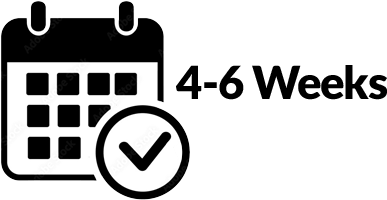
It can take up to 4-6 weeks for NMN supplements to have a positive impact on your overall NAD+ stores. Maintaining a regular routine is key when it comes to the long-term efficacy of NMN supplements. Otherwise, NMN levels will gradually start to decline to pre-supplementation levels.
Here are a few tips on how you can get
the most out of your daily NMN supplement:

Take your NMN supplement around the same time each day.

Morning works best for absorption of most NMN supplements.

Supplement on an empty stomach or 1 hour before a meal. (Liposomal delivery may eliminate this requirement.)

Do not exceed recommended dosages.

Speak with your doctor before starting any supplementation.
While the above are generally good guidelines to follow with any supplement, finding your individual preferences is key if you’re going to maintain a regular routine. In addition, supplements that contain bio-enhancers or advanced delivery systems may have varying methods of supplementation outside the above parameters.
Can You Take NMN with Other Supplements?

In general, yes. Many people opt to take NMN supplements with their regular daily multivitamins with no adverse effects. NMN isn’t known to negatively interact with any other supplements. However, a supplement with unknown ingredients may contain substances that can. For example, certain herbals found in some supplements can interact with common medications.
Always check with your doctor or medical professional before adding a new supplement to your regular routine. This is especially true if you have any underlying health concerns or are currently on any medications – prescription or otherwise.
What is the Safety of NMN?
NMN has been shown to be both safe and effective in animal and human trials.21 NMN is the precursor to NAD+, which is vital for nearly every metabolic process in our bodies. While both NMN and NAD+ are naturally occurring, these levels start to dissipate as early as age 35 and continue to fall the older we get.
Increasing these levels with NMN supplements is a natural approach to positively impact organ and tissue function. However, supplementation with NMN is not recommended for pregnant or nursing women. Nor is NMN suitable for persons with certain medical conditions or those who are on one or more prescription medications.
How Much NMN is Safe to Take?
There is currently no maximum dosage to the amount of NMN deemed safe. A study published online in 2022 by GeroScience aimed to test the upper limits of NMN supplements. Here’s what happened:22
A randomized, double-blind, placebo-controlled trial investigated the efficacy and safety of NMN supplementation.23 Using 300mg, 600mg, and 900mg daily oral doses in healthy adults of 40-65 years old, results were collected at 30 and 60 days.
A randomized, double-blind, placebo-controlled trial investigated the efficacy and safety of NMN supplementation. Using 300mg, 600mg, and 900mg daily oral doses in healthy adults of 40-65 years old, results were collected at 30 and 60 days.
- After both 30 and 60 days, no adverse events were reported with either the 600mg or the 900mg groups.
- All three groups that did not receive the placebo showed improvement in several parameters over the course of 30 and 60 days.
- Oral supplementation of 900mg was shown to be safe and effective for long-term use of 60+ days.
Because there were no adverse events recorded with any of the participants who received oral NMN supplementation, a maximum dose is yet to be determined. More long-term human trials need to be done to identify where NMN dosages should be capped.
What are the Side Effects of NMN?

Based on current research, there aren’t any known adverse side effects when it comes to supplementing with NMN. That being said, many NMN supplements contain other filler ingredients that may. It’s a good idea to avoid products that can contain potential allergens like soy, gluten, or herbals.
In addition, there have been very few studies on the long-term side effects associated with NMN supplements, making more research necessary. If you experience any serious side effects during supplementation with NMN, stop use immediately and seek medical advice.
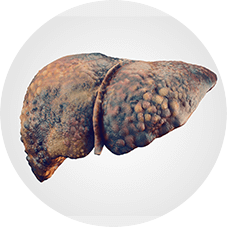
Is NMN Harmful to the Liver?
While more research needs to be done, one study demonstrated that 300mg of NMN (administered intravenously) does not cause significant damage to blood cells, the liver, pancreas, heart, or kidneys.24 The same study showed NMN supplementation effectively increased the amount of NAD+ levels in blood cells.
The Issues of Absorption Concerning NMN
We know that NAD+ can have a positive impact on just about every aspect of our lives. But unfortunately, NAD+ isn’t easily absorbed in the body.25 Why? While there are varying ideas when it comes to low absorption rates of NAD+, the predominant theory is that the molecules are just too large.
NAD+ isn’t able to cross certain cell membranes, making oral supplementation all but useless. Instead, longevity scientists suggest focusing on enlisting the help of NAD+ precursors, like NMN.
NMN is more easily absorbed into our system, triggering the body to naturally produce higher levels of cell-healthy NAD+. NMN can be found in a number of fruits and vegetables like edamame, broccoli, cabbage, cucumber, and avocado. But even these “high” sources of NMN only give you about 1mg of useful NMN for every 100g you consume.
Depending on your age and goals, clinically studied doses of pure NMN range from 250mg to 900mg. It would be nearly impossible, and impractical at best, to get the quantities of NMN needed through diet alone.

Enter NMN supplements – the practical way to naturally increase NAD+. These dietary aids offer a concentrated form of pure NMN. But there’s another problem with many NMN supplements and it involves our bodies’ natural digestive processes.
For maximum efficacy, NMN supplements need to be able to reach the bloodstream, where key nutrients can best be absorbed into organs and tissues. The issue here is that, when taken orally, stomach acid tends to prematurely break down and destroy NMN before it gets to where it needs to go.
This renders even the highest doses of NMN less than effective. But, there is a way to protect NMN supplements from an untimely demise, and it all boils down to the drug delivery system.
What’s the Best
Drug Delivery System for NMN?
A “Drug Delivery System” (DDS) is just a term for the way manufacturers choose to package their products for delivery into your system.26 Some are more effective than others at getting a substance from point A to point B – where it can be most effective.
The most common types of DDS are:
Sublingual (under the tongue)
Intravenous injections
Nasal delivery
Pulmonary drug delivery (inhaled)
Oral delivery (tablets, capsules, and syrups)
Most NMN supplements use oral-based delivery systems for the convenience of the user. However, as we mentioned before, oral delivery can be detrimental to the substance that decidedly needs to be delivered.
Happily, there’s a fairly new DDS that’s revolutionizing the way we think about taking medications of any kind. It’s called liposomal encapsulation, and it’s revolutionizing the health and wellness industry.27 The use of liposomes for drug delivery is expected to grow rapidly in the next 5 to 10 years as medications, previously unavailable for safe passage through the stomach, will now become usable.
The Advantages of Liposomal as a DDS for NMN Supplements
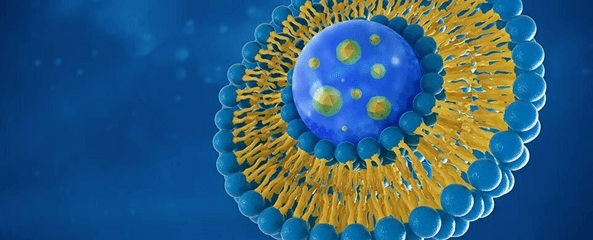
Many manufacturers will boast higher milligram pills, but in reality, the yield is much smaller than what’s deemed clinically useful. But without a good DDS, it doesn’t matter much how large of a dose you’re ingesting – because the majority is destroyed by stomach acid during delivery.

The advantages of liposomal for
NMN supplements are numerous:
So, why don’t more manufacturers use liposomal technology? The main reason is that liposomal encapsulation is just too expensive. The cost of acquiring the equipment and lab ingredients required for liposomal encapsulation can significantly reduce a manufacturer’s profit margin.28
For good or bad, pure NMN is also fairly difficult to procure, making it a more expensive ingredient than most. Manufacturers that use higher, clinically studied doses of pure NMN are more likely to protect that investment with liposomal encapsulation. This advanced absorption technology means the end-user can expect better results with lower dosages.
Who Should (and Shouldn’t) Take NMN Supplements?

Starting any supplementation regime should be done with careful consideration. Dietary aids require a long-term commitment and need to be taken daily if you’re going to see tangible results from them.
NMN supplements are no different. It can take several weeks to naturally increase NAD+ stores and even longer to achieve optimal outcomes. With that being said, those who go into NMN supplementation with realistic expectations tend to see the best possible outcomes, often exceeding their end goals.
There are five basic types of people who may have an interest in taking NMN supplements. We’ll break them down below to determine which category(ies) you might fit into and how you can best utilize NMN supplements to your advantage.

It’s pretty common knowledge that as we get older, our mental and physical well-being starts to decline. Well, it turns out that around the age of 35, our NAD+ levels naturally begin to dissipate, leaving us more susceptible to a plethora of age-related issues – even when we feel at the top of our game.
NMN and NAD+ are involved in nearly every aspect of our biological processes, from cellular function to blood flow to DNA repair. By the time we’re middle-aged, when natural NAD+ stores are only about 50% of what they were in our youth, it only goes downhill from there.
Men and women who have a proactive interest in their health and longevity may want to consider enlisting the help of NMN supplements. Addressing problems before they arise is the best way to ensure your quality of life remains as high as possible for as long as possible.

You may be interested in NMN supplements if you’ve been keeping up with the latest natural health and wellness trends. While “trends” are not the same as evidence-based medicine, many enthusiasts, like yourself, are flocking to NMN for the benefits that can be gained if the science continues to support the initial findings
While more human trials need to be done to substantiate the advantageous claims associated with NMN, the legitimate research behind these supplements is moving forward with encouraging data. In addition to the anti-aging benefits, NMN supplements are said to have anti-inflammatory, anti-cancer, and immune-boosting properties.
Supplementing with NMN, thereby naturally increasing your NAD+ stores, can have a positive impact on age-related muscle and organ degradation as well. If you’re all about maintaining your optimal well-being, NMN supplements could be the missing piece to your wellness puzzle.

The average retirement age adult has about 80% less NAD+ than they did in their youth. Unfortunately, this natural decline in NAD+ may result in various health concerns. This can be in the form of age-related weight gain, poor insulin sensitivity, reduced cardiovascular function, cognitive difficulties, diminishing muscle mass, and more. But there is good news, too.
Restoring NMN and NAD+ levels to those of your younger days is being investigated for many of these issues. If you’re looking to reverse signs of aging and keep frailty and organ decline at bay, supplementation with NMN could be able to help.

If you aren’t getting the results you want from physical activity, you’re not alone. But even if you’re doing everything right, there are other reasons you might not be hitting your exercise goals. Physical plateaus can be caused by a lack of endurance, age-related depletion of lean muscle mass, increased visceral fat stores, or poor blood flow.29 All of these have been potentially linked to lower NAD+ stores in our bodies.
The good news is that the NMN triggering of the body’s natural production of NAD+ aids in the development of capillaries in the muscles.30 Additional blood capillaries increase circulation, and the better oxygenation of muscles allows you to exercise longer and harder while enjoying shorter recovery times.
Men and women who want to get more out of their workout could benefit by increasing their natural NAD+ stores with NMN supplements.

Many health and wellness professionals are looking for more natural therapies to address concerns regarding a person’s well-being. The work of renowned aging researchers like Harvard Professor David Sinclair has indicated NMN adds another viable option for adults looking to improve their quality of life – and possibly their longevity.31
NMN’s positive affect on metabolic processes in both animal and human trials suggests a wide range of potential treatment options via NMN supplements. Researchers have tested the viability of NMN on everything from improved insulin levels in overweight or prediabetic patients to supporting optimal organ function through DNA repair.32
Some medical professionals are even looking into NMN supplements for anxiousness and depressive-like symptoms.33 However, many more human clinical trials are necessary to prove the efficacy of NMN for mental health.34
Depending on your individual goals, your healthcare practitioner may discuss the option of NMN supplements. Together with your doctor, you can create a wellness plan tailored to your specific needs, enabling you to achieve the best possible outcomes.
Are NMN Supplements Right for You?
Based on all the above, it is rational to assume the majority of middle-aged adults could benefit from increased NAD+ levels. Because NAD+ plays a role in just about every aspect of our biological processes, it’s hard to argue with maintaining optimal levels. NMN supplements, according to the biochemistry, should help keep NAD+ stores from depleting as we age.
Conversely, NMN supplements are just one way to naturally increase NAD+. Before opting for supplementation right away, you may want to consider enlisting the help of diet, exercise, and lifestyle changes to restore optimal NMN and NAD+ naturally.
Raising NAD+ levels with NMN supplementation may not yield the best results if:
- You are under the age of 32
- You do not appreciate the importance of the relative effects of dose35
- You are not overweight
- You have low blood pressure (hypotension)
Due to limited research on the safety of NMN supplements for expectant mothers and their developing fetuses, it is not advisable for women who are pregnant to use NMN. In addition, there is insufficient evidence to support the use of NMN for breastfeeding women.
If you are 35+ and have a proactive interest in your health and longevity, NMN supplementation could benefit you. A medical professional can provide guidance on how you can best use NMN supplements to your advantage.
The Definitive Guide to NMN Supplements:
Final Thoughts
Increasing lost NAD+ stores can improve our quality of life and our overall longevity. Combining NMN supplements with certain lifestyle changes cIncreasing lost NAD+ stores, as the associated findings in the literature suggest, can improve your quality of life and possibly even your overall longevity. Combining NMN supplements with certain lifestyle changes could be the best way to achieve age-defying regenerative effects.
To get the most out of your NMN supplements, keep in mind things that could affect results:
- Age
- Weight
- Low blood pressure (hypotension)
- Anxiety or depression (even though NMN is being studied for these)
- Other medications you may be on
At GenuinePurity™, your well-being and safety are our business. We hope this definitive guide to NMN supplements has helped you navigate the highly technical world of NMN, NAD+, and NR. We feel confident that using this information correctly, adding an NMN supplement to your regular routine can have a positive impact on your overall well-being.
Endnotes
- https://www.frontiersin.org/journals/endocrinology/articles/10.3389/fendo.2022.829658/full
↩︎ - https://primehealthdenver.com/nmn-supplement/#:~:text=NMN%20is%20not%20vitamin%20B3,%2C%20liquid%2C%20or%20capsule%20form ↩︎
- https://primehealthdenver.com/nmn-supplement/#:~:text=NMN%20is%20not%20vitamin%20B3,%2C%20liquid%2C%20or%20capsule%20form ↩︎
- https://www.frontiersin.org/journals/endocrinology/articles/10.3389/fendo.2022.829658/full
↩︎ - https://www.mayoclinic.org/drugs-supplements-niacin/art-20364984#:~:text=Overview,from%20the%20food%20they%20eat.
↩︎ - https://www.ncbi.nlm.nih.gov/pmc/articles/PMC10240123/
↩︎ - https://www.nature.com/articles/s42255-020-00298-z
↩︎ - https://www.nature.com/articles/s42255-020-00298-z
↩︎ - https://portlandpress.com/biochemsoctrans/article-abstract/47/1/119/133/Keeping-the-balance-in-NAD-metabolism?redirectedFrom=fulltext
↩︎ - https://www.frontiersin.org/journals/cell-and-developmental-biology/articles/10.3389/fcell.2020.00246/full
↩︎ - https://www.nature.com/articles/s41580-020-00313-x ↩︎
- https://www.ncbi.nlm.nih.gov/pmc/articles/PMC10505611/ ↩︎
- https://www.ncbi.nlm.nih.gov/pmc/articles/PMC10505611/
↩︎ - https://www.nature.com/articles/s41598-023-29787-3 ↩︎
- https://hms.harvard.edu/news/rewinding-clock
↩︎ - https://jbiomedsci.biomedcentral.com/articles/10.1186/s12929-019-0527-8
↩︎ - https://pubmed.ncbi.nlm.nih.gov/36690678/
↩︎ - https://healthnews.com/health-conditions/alzheimers-dementia/can-nmn-reverse-alzheimers-and-dementia/
↩︎ - https://www.ncbi.nlm.nih.gov/pmc/articles/PMC4112140/
↩︎ - https://www.healthline.com/health/nmn-nicotinamide-mononucleotide-benefits-side-effects-and-dosage#Dosage-
↩︎ - https://www.sciencedirect.com/science/article/pii/S2161831323013595
↩︎ - https://link.springer.com/article/10.1007/s11357-022-00705-1
↩︎ - https://www.ncbi.nlm.nih.gov/pmc/articles/PMC9735188/
↩︎ - https://www.ncbi.nlm.nih.gov/pmc/articles/PMC9534732/#:~:text=Our%20clinical%20study%20demonstrated%20that,of%20NAD%2B%20in%20blood%20cells
↩︎ - https://www.sciencedirect.com/science/article/pii/S2468501121000055#:~:text=NAD%2B%20is%20not%20absorbed%20well,oral%20supplementation%20impracticable%20%5B7%5D
↩︎ - https://www.sciencedirect.com/topics/nursing-and-health-professions/drug-delivery-system
↩︎ - https://pubs.rsc.org/en/content/articlehtml/2021/xx/d0nh00605j
↩︎ - https://labinsights.nl/en/article/liposomes-as-drug-delivery-vehicles
↩︎ - https://physoc.onlinelibrary.wiley.com/doi/abs/10.14814/phy2.14139
↩︎ - https://www.ncbi.nlm.nih.gov/pmc/articles/PMC4796623/
↩︎ - https://www.biorxiv.org/content/10.1101/2024.06.21.599604v1.abstract
↩︎
https://www.sciencedirect.com/science/article/abs/pii/S0165032719322438
↩︎- https://healthnews.com/longevity/longevity-supplements/nmn-supplements-for-managing-depression-how-can-it-help/
↩︎ - https://www.ncbi.nlm.nih.gov/pmc/articles/PMC6511662/#CR55
↩︎ - https://assets.cureus.com/uploads/review_article/pdf/280185/20240831-397400-v0wper.pdf
↩︎

